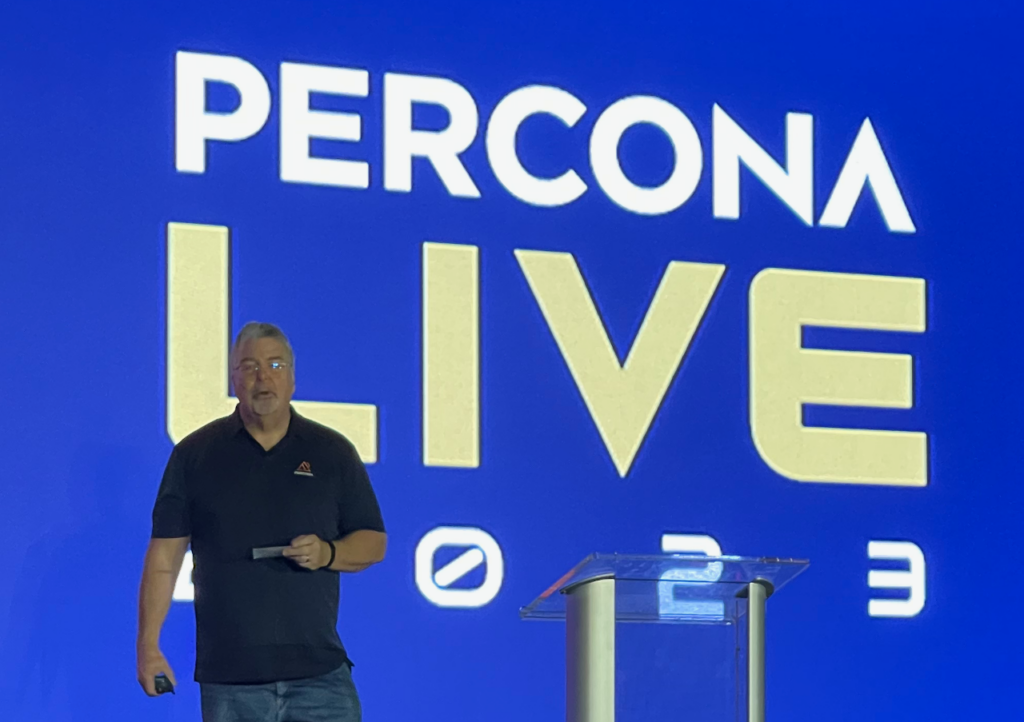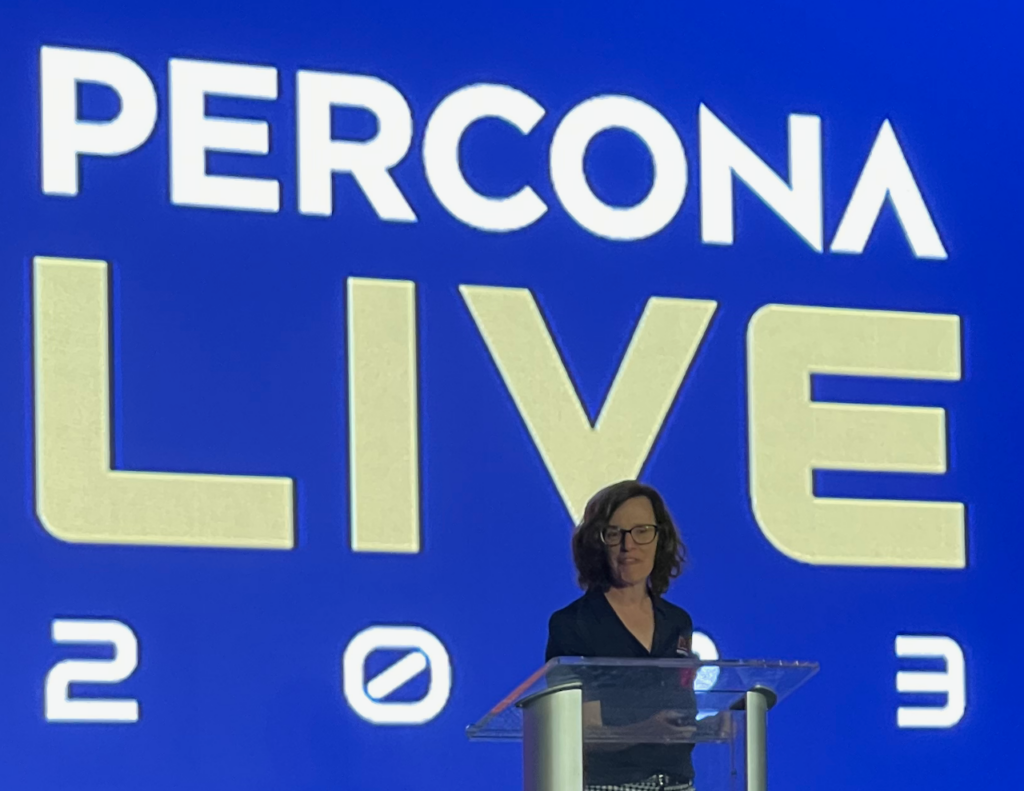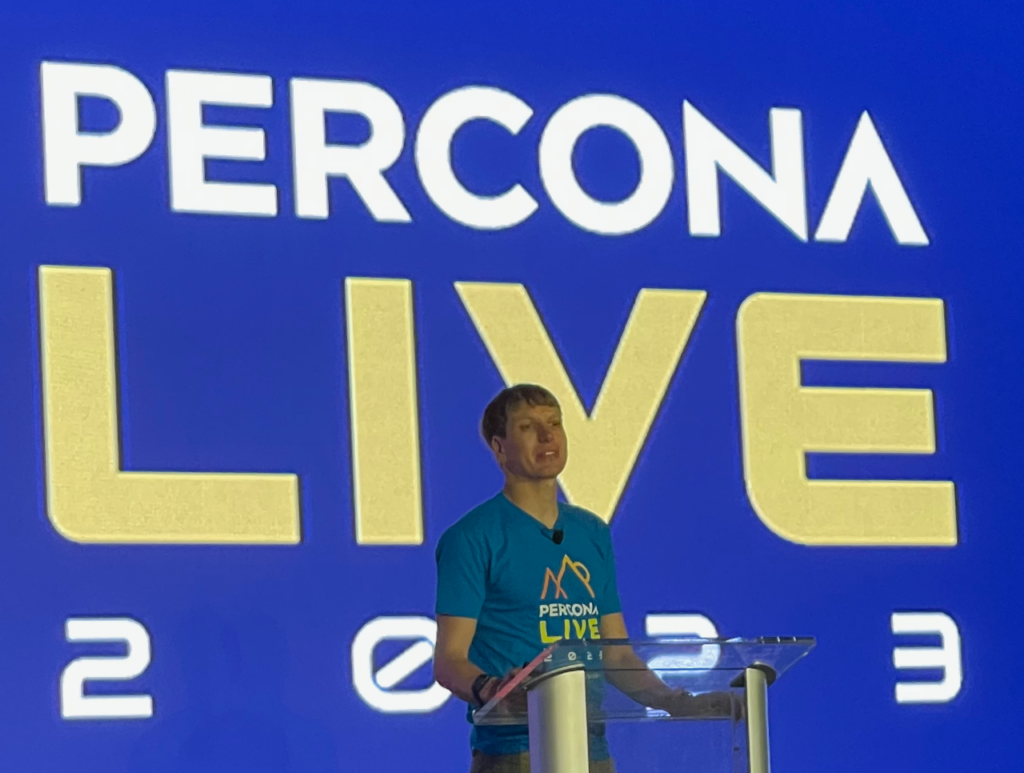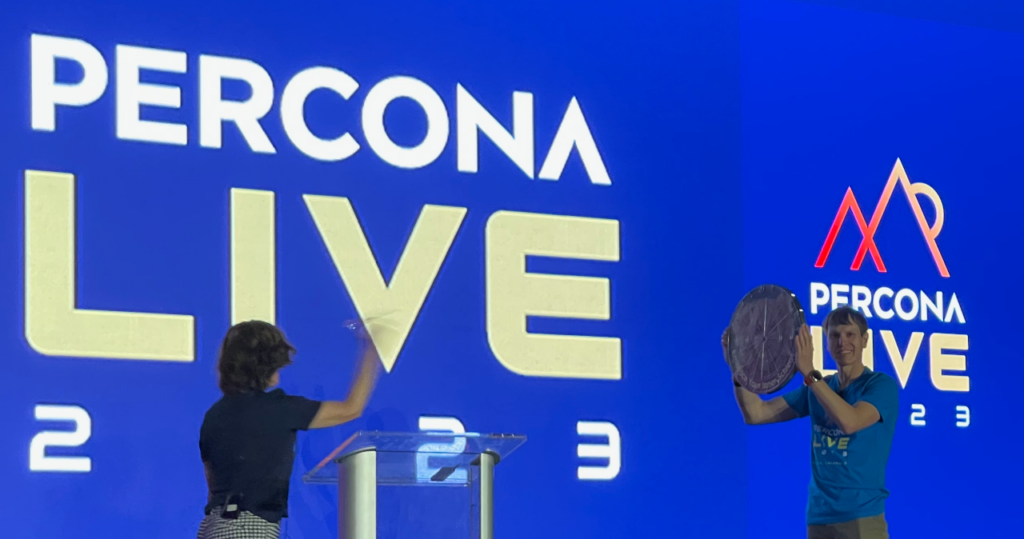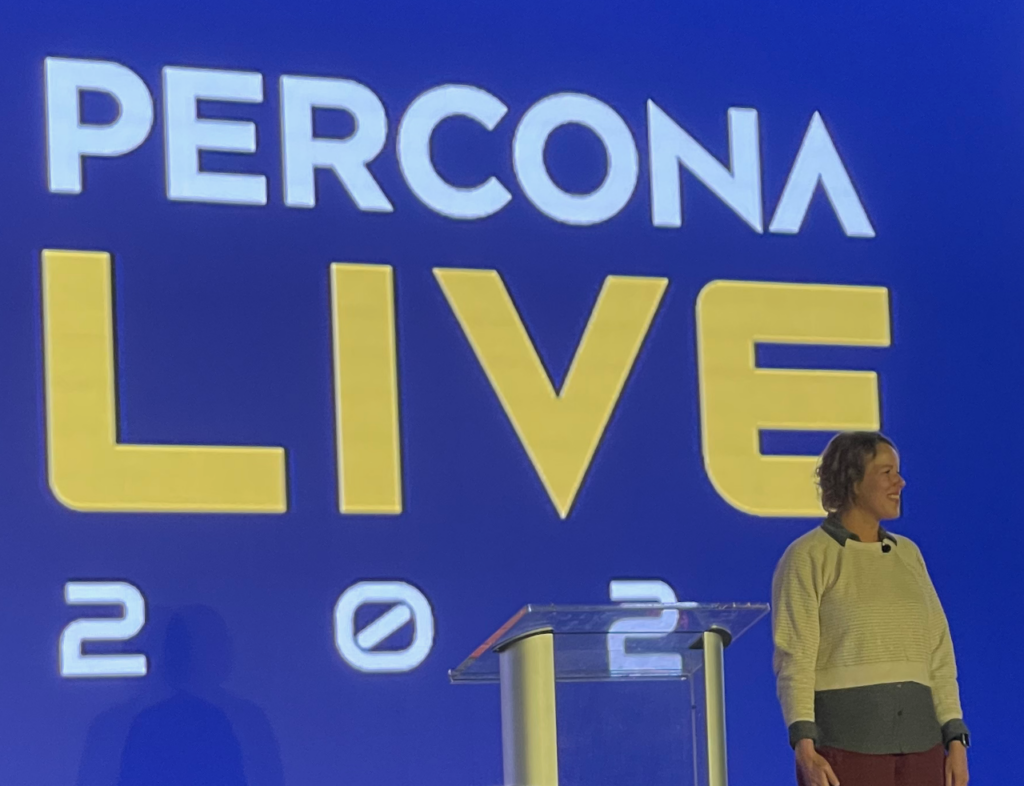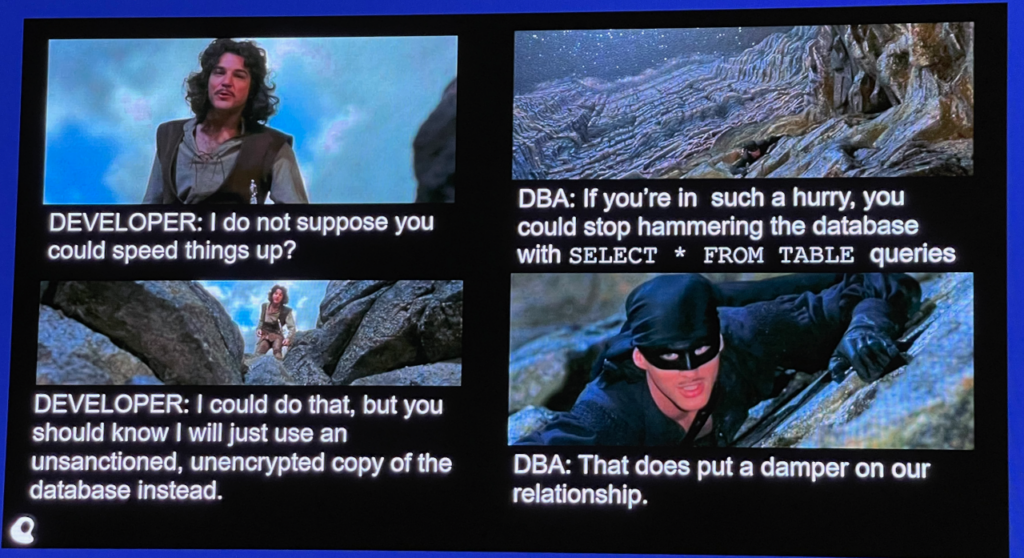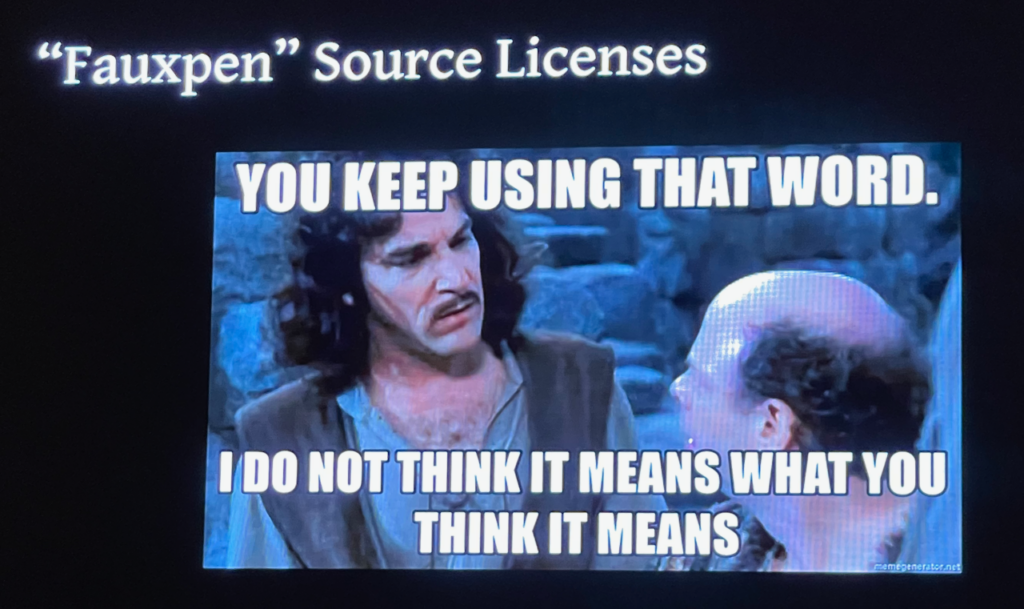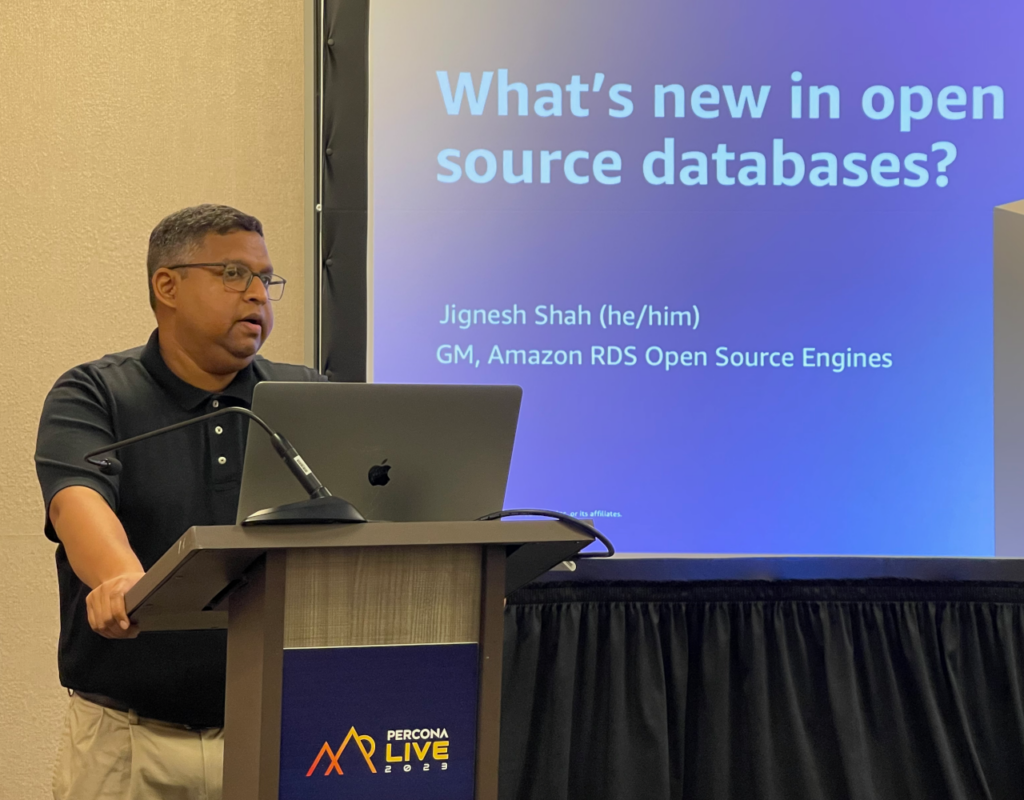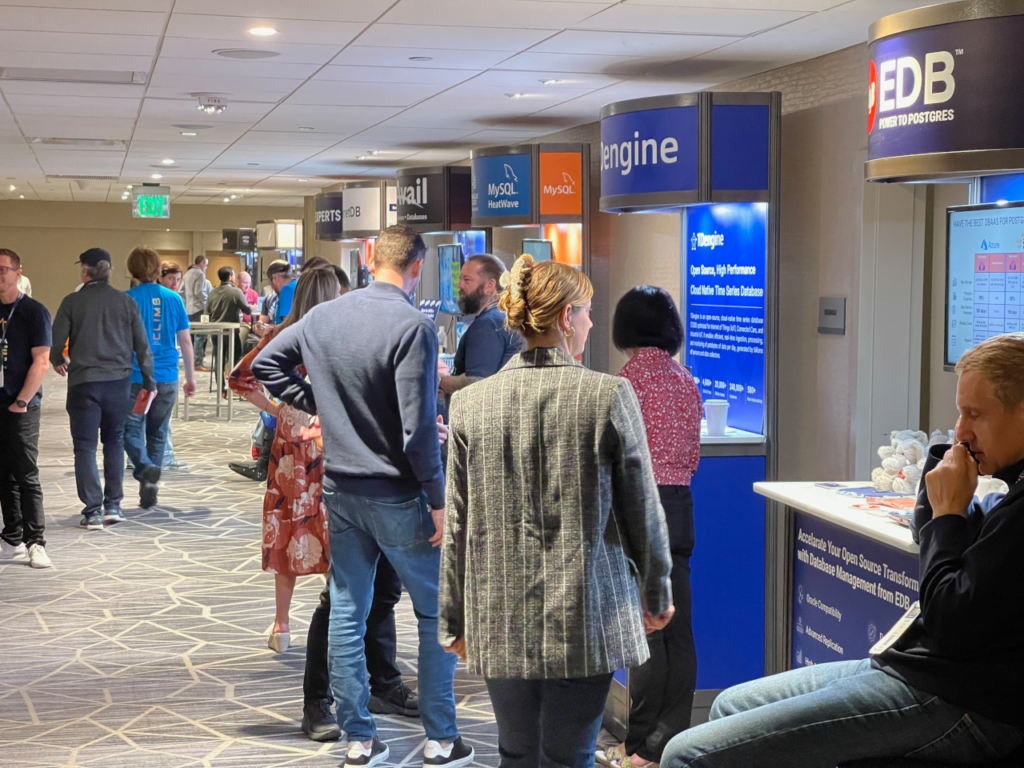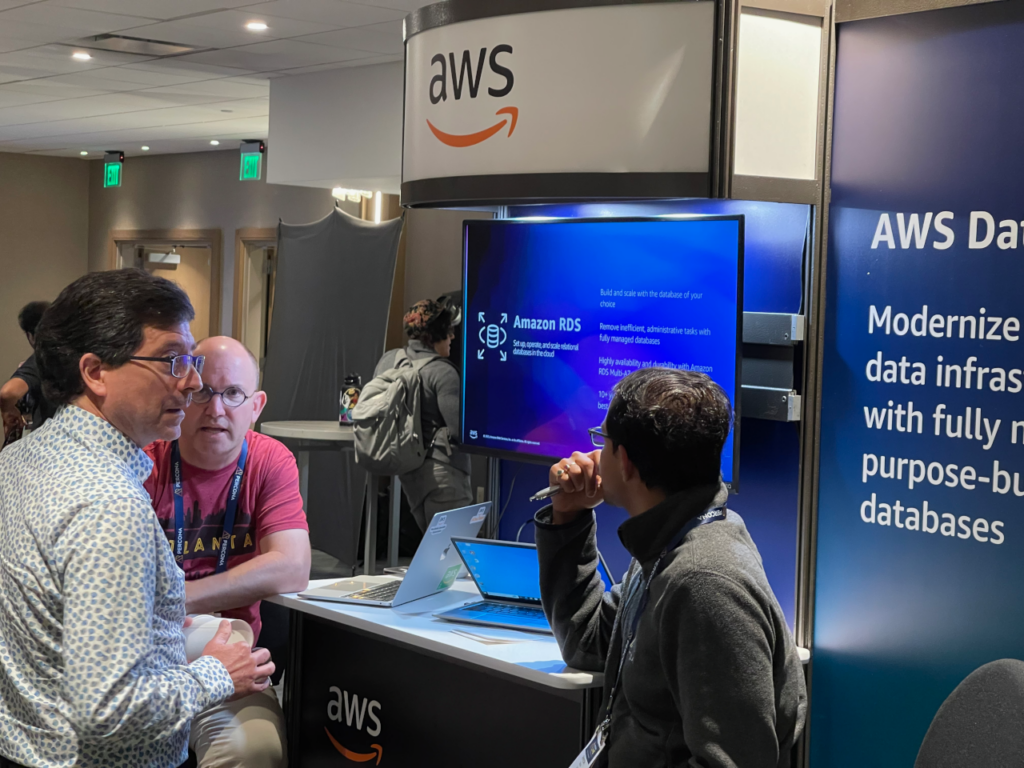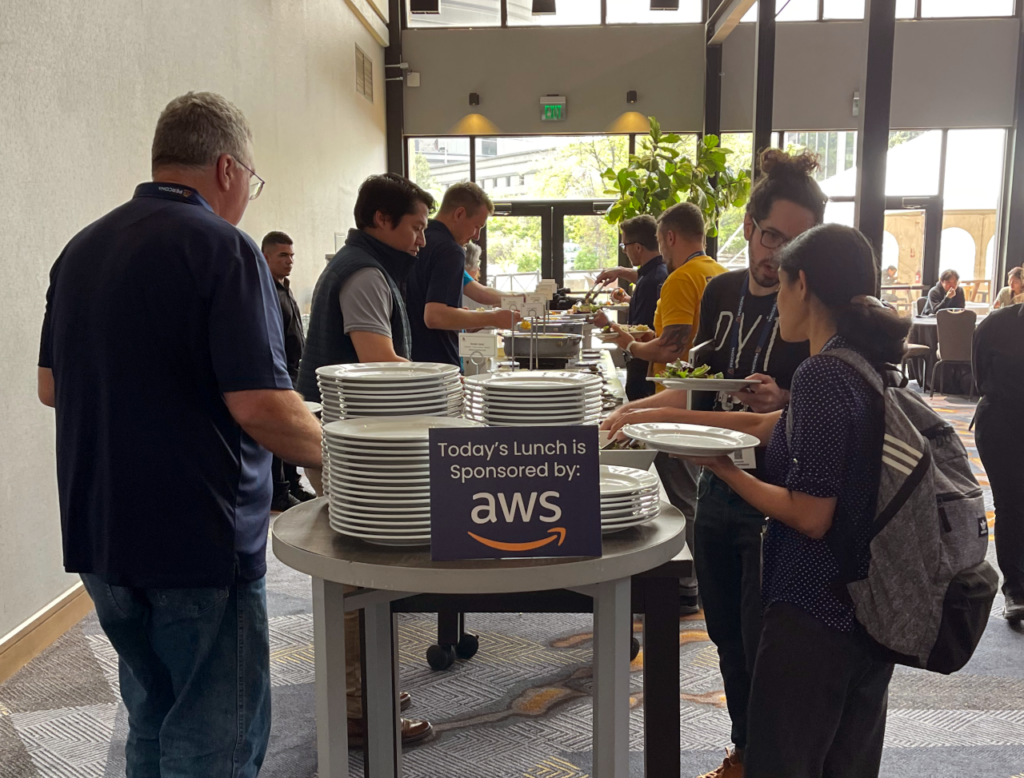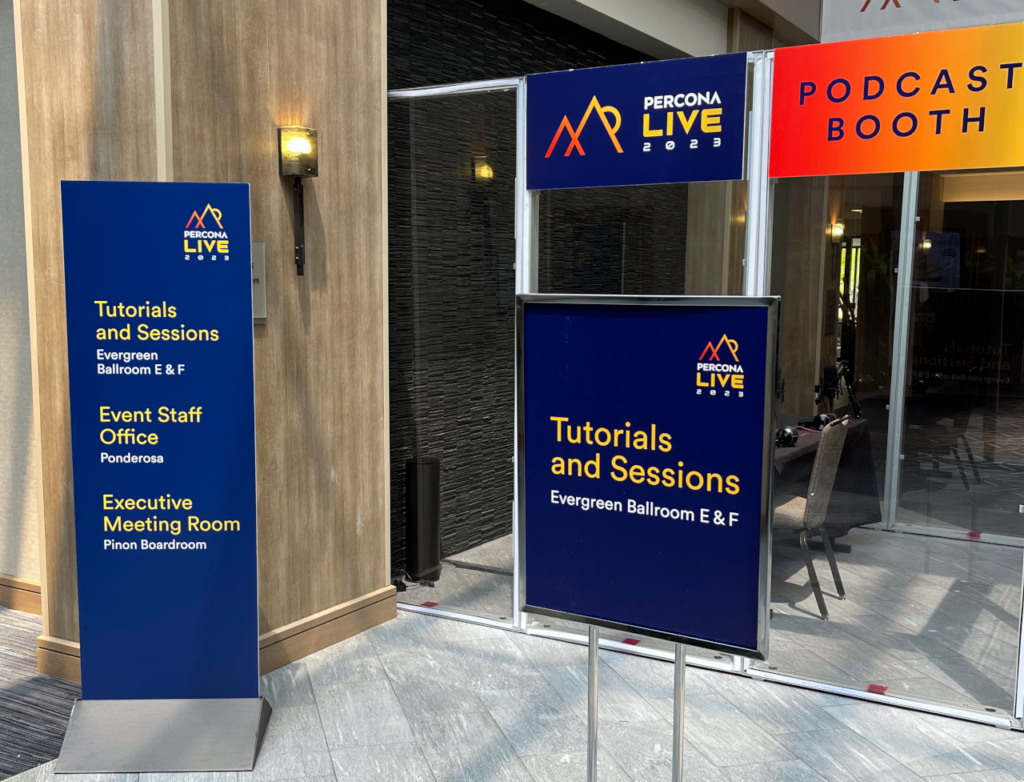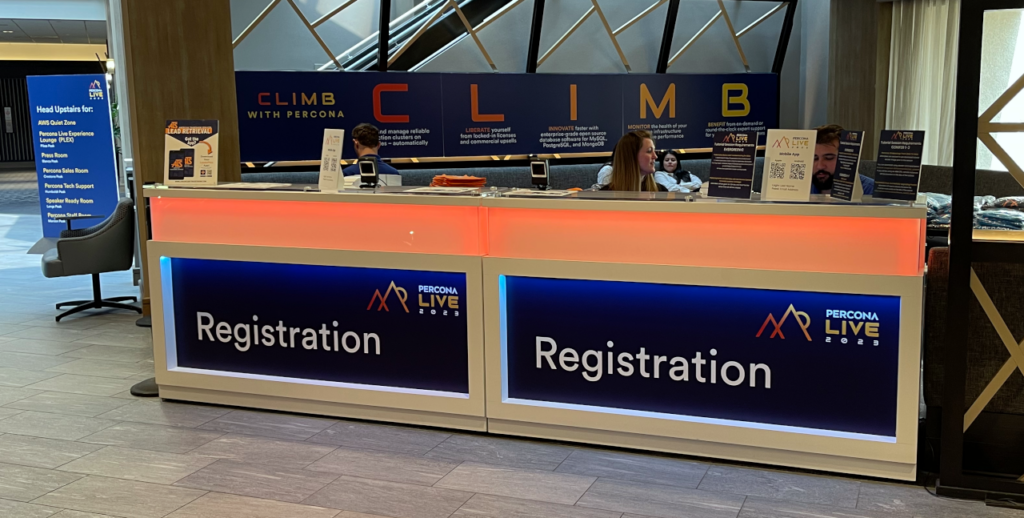The final day of Percona Live started off with a keynote and a panel discussion.
As on the day before, Dave Stokes starting things off with some housekeeping notes.
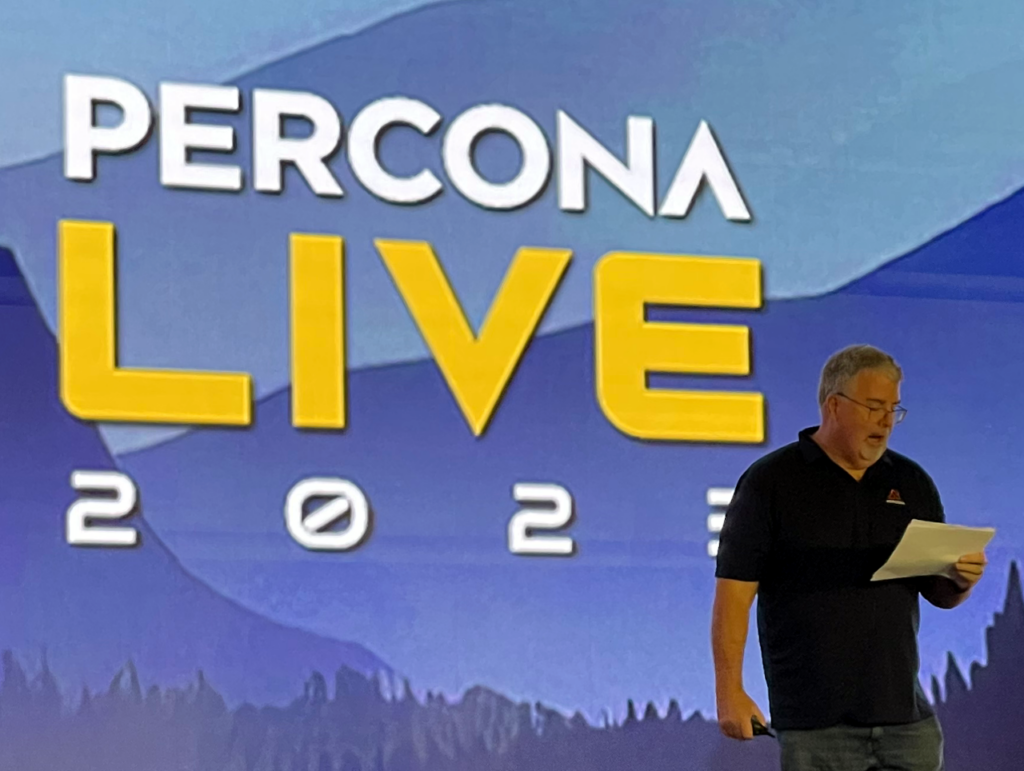
After that he introduced Percona’s Chief Technical Officer and co-Founder, Vadim Tkachenko, who presented a roadmap for Percona’s products.
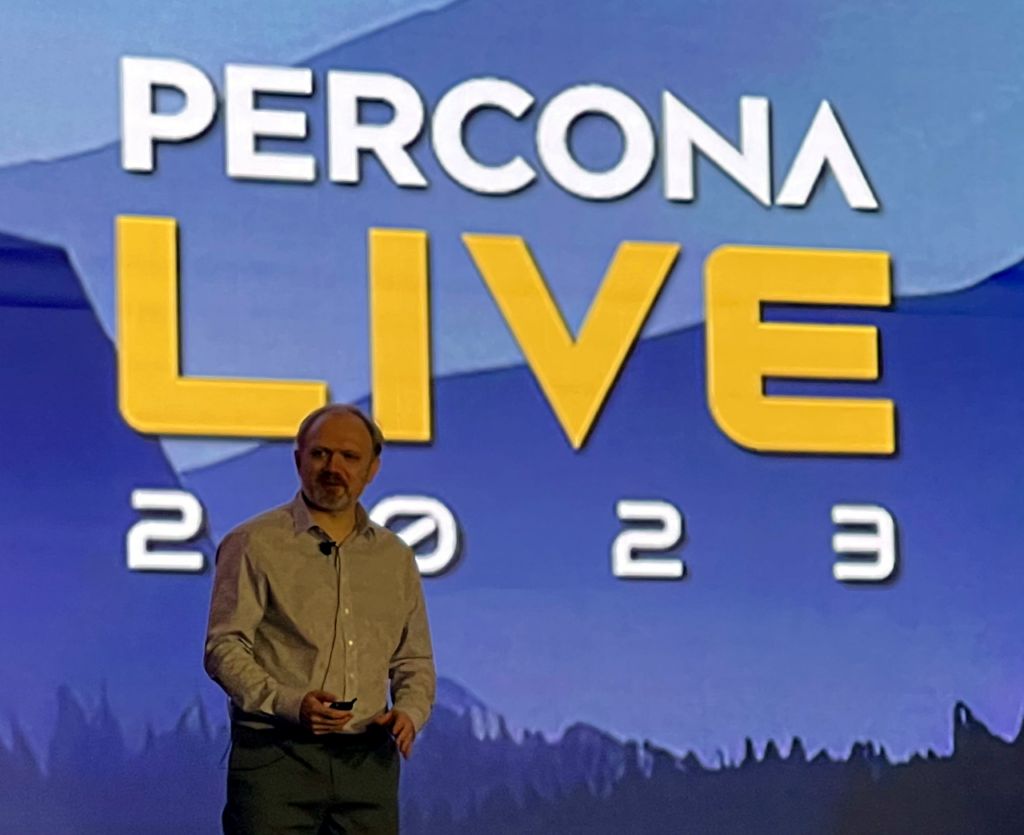
I am always interested in the customer angle for any product, so after Vadim finished he joined Michael Coburn, Principal Architect at Percona and Ernie Souhrada, who is a database engineer from Pinterest, for a “fireside chat”. Any discussion of a technical solution can be enriched by talking to end users, and Souhrada, as you might expect, was very bullish on Percona but was also able to tell us about some issues they encountered and how they were resolved.
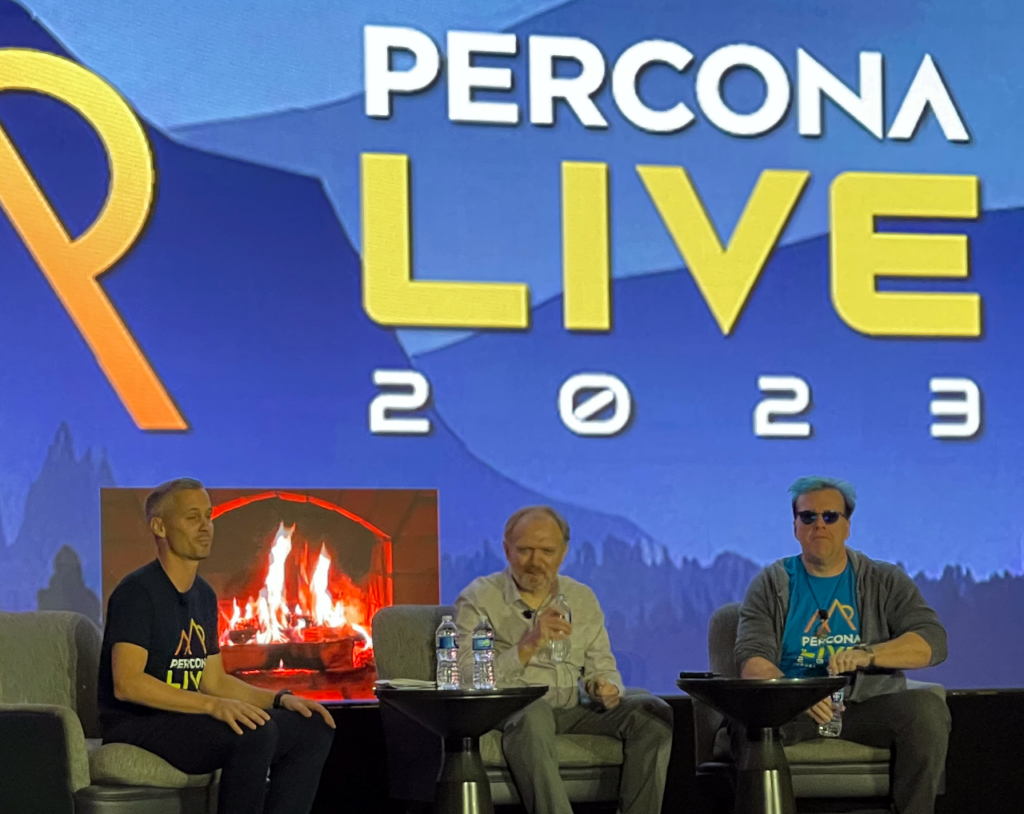
After this opening presentation I spent my time in the sponsor showcase and talked to a number of people. While this conference is pretty specialized, people were enjoying it and seemed to be getting a lot out of the sessions.
In the afternoon I went to a second session by AWS, this one focused on troubleshooting issues with MySQL on Amazon RDS.
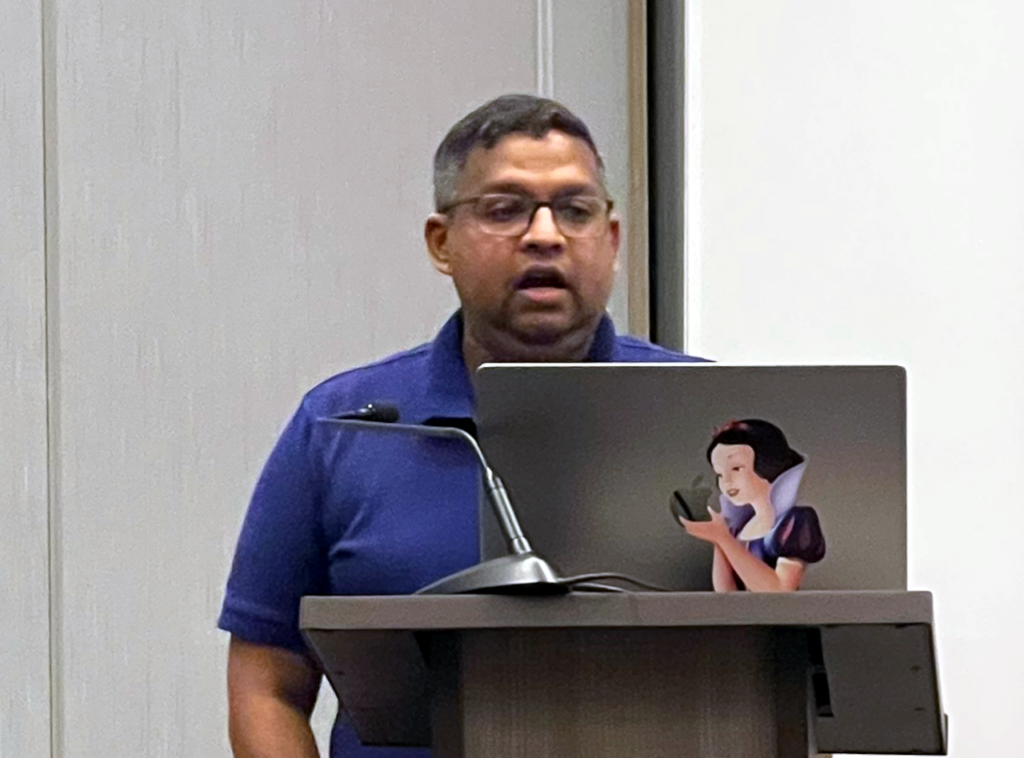
Jignesh Shah kicked it off by discussing some of the monitoring tools one gets with Amazon RDS, which include gathering metrics on the instance, the operating system and, of course, the database.
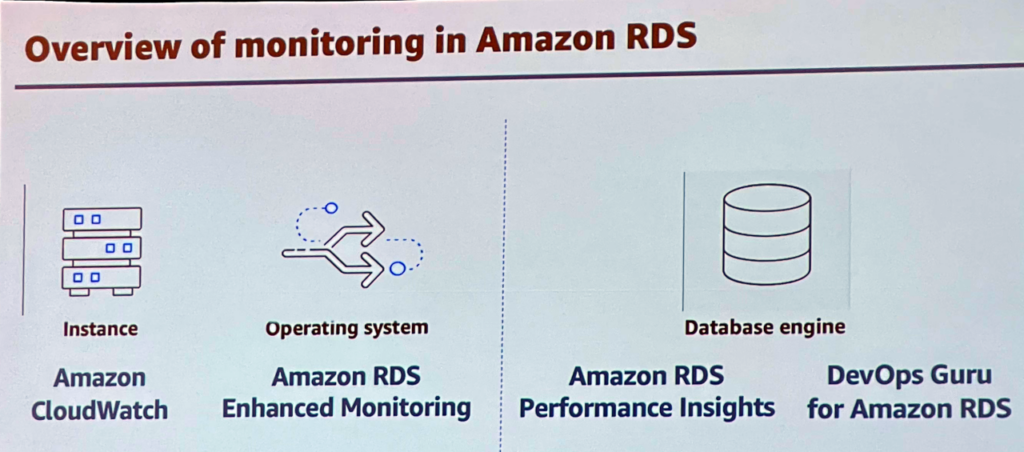
He then turned it over to Raluca Constantin, a database engineer who really knows her stuff.
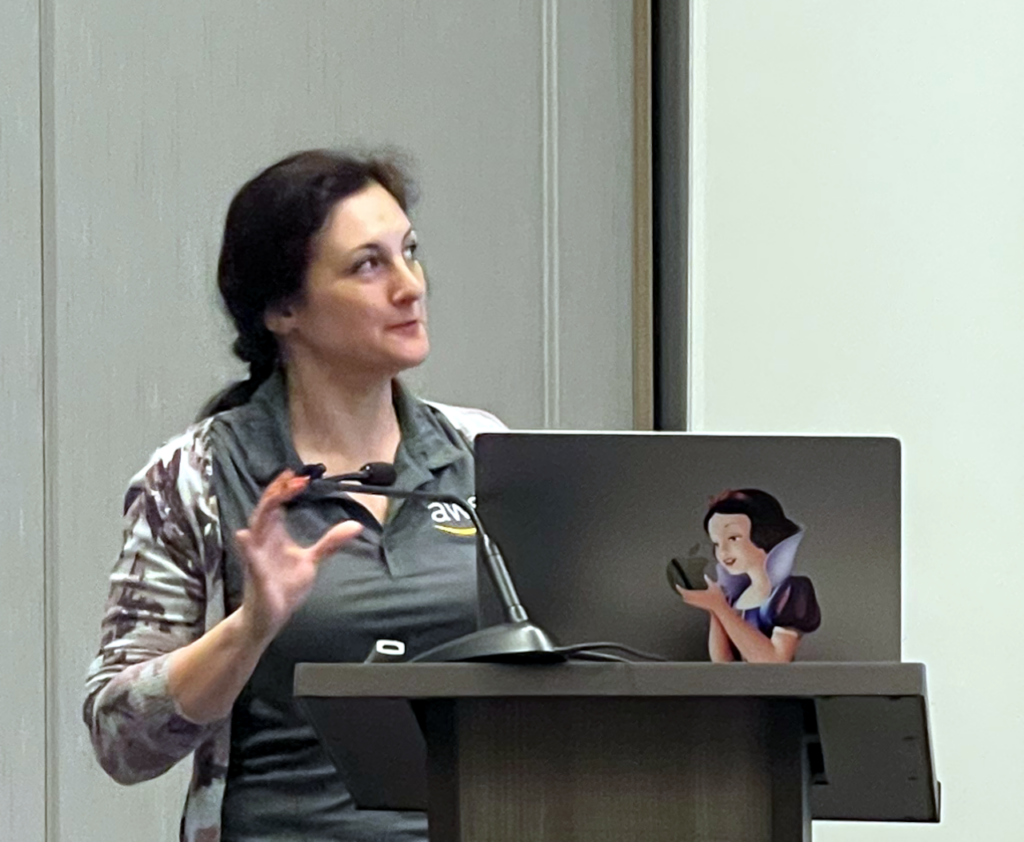
She went over four different scenarios that she had encountered in the past with MySQL along with step by step instructions on how they were corrected.
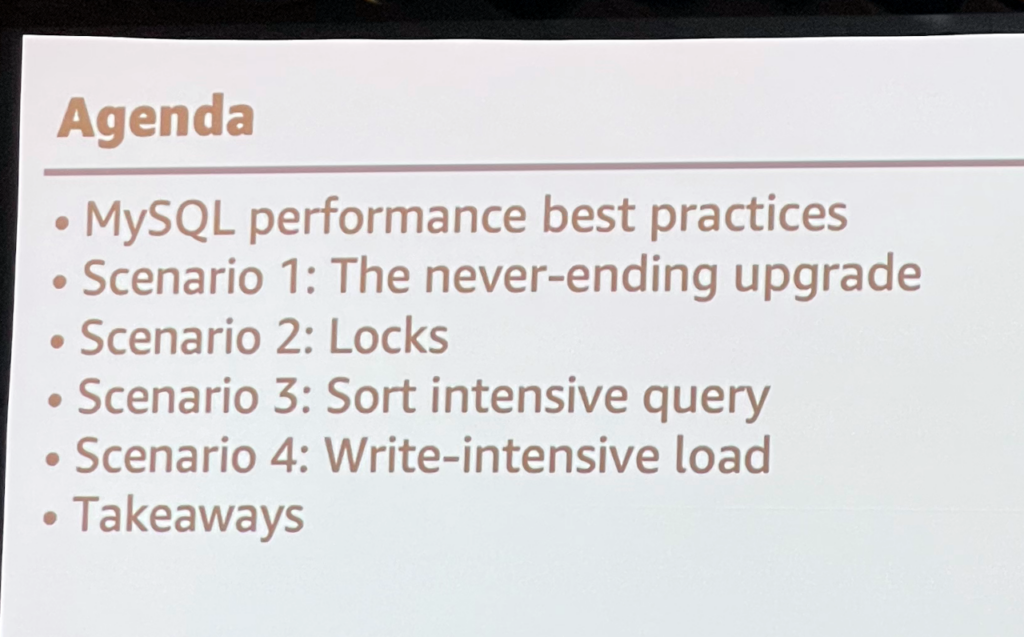
The first scenario involved a problem with upgrading from MySQL 5.7 to MySQL 8. In some cases the table names for some system tables would have case differences. This would cause upgrades to hang.
The easiest fix was to run a query before the upgrade to see if these changes existed and if so the table names could be modified in the existing database to make sure the upgrade didn’t fail. However, the first attempt took over nine minutes to complete, and Raluca went through the logic of improving the query until it ran in seconds.
The second scenario involved detecting locks. Locks occur when the database is executing an action that requires exclusive access to, say, a table. If that action takes a long time, performance of the database can degrade. There are tools, such as Percona Monitoring and Management (PMM), that can detect when this happens, and she also showed how one can modify some system parameters so that actions that cause locks will fail if they exceed a specified timeout.
At this point I had to leave to meet some other AWS folks across town, which was disappointing since I really liked how Raluca was presenting these topics. I hope to be able to see her speak again in the near future.
While this was pretty much the end of my Percona Live experience, I did discover that there was another conference going on this week called Glue.
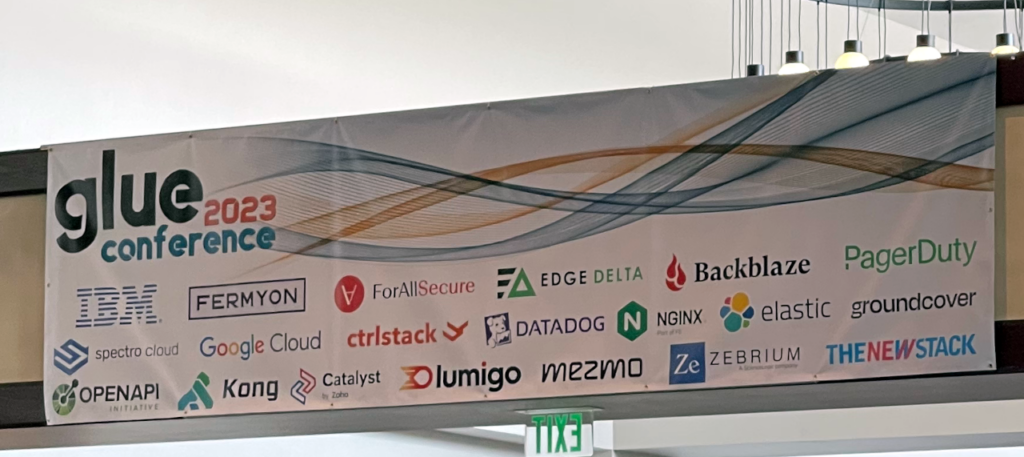
I was pretty certain I saw Matt Butcher from Fermyon in the hotel, but didn’t want to bother him. Fermyon’s technology is a topic for a future post.
By the time I got back to the Marriott later that night, all of the conference stuff had been cleaned up. Overall I was pretty pleased with the venue with the exception that it is in a generic business park and really didn’t show off what Denver has to offer.
It was a pretty intense week (and I had to get up early for my flight home) so I went to bed, but I’m happy I came. I got to see some friends and make some new ones, which is one of the best things about in-person conferences. That said I’m looking forward to being at home for a bit.

